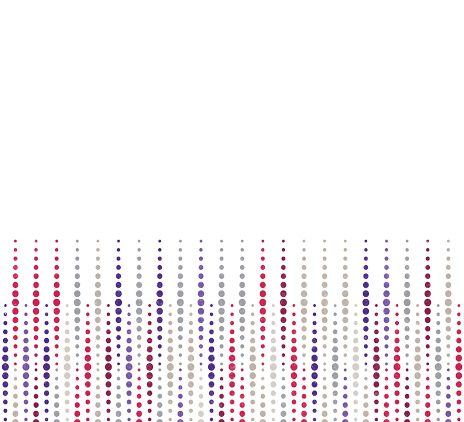-
Valuations
For organisations involved in a transaction, dispute, merger, acquisition or restructuring, the value of the company involved and its assets will be an important commercial consideration. A clear and thoughtful view of the respective value is therefore essential in such situations.
-
Due diligence
Due diligence identifies risks and examines potential financial, tax, legal or operational pitfalls. We offer robust due diligence services, clearly tailored to our clients' requirements.
-
Independent trusted advice
Do you want to sell your business or rather grow it through an acquisition?
-
Corporate reorganisations
Redesigning your group structure can mean significant cost savings and/or efficiency improvements. The restructuring provisions of the Companies and Associations Code (merger, demerger, contribution or transfer of branch of activity, etc.) provide you with the legal means to achieve this.
-
Legal support
Mergers and acquisitions represent a challenge for dynamic organisations. As a manager or entrepreneur, you want to look at this challenge from all sides to obtain the best conditions. That is why our professionals work on the basis of integral process management during merger, sale or acquisition processes.

-
Transfer pricing
Our experts help document your transfer pricing principles, intra company transactions and internal reporting and organisation. They design and implement settlement pricing structures for both national and multi-national companies. When services are centralized, they determine acceptable costs and margins.
-
Global mobility services
International employment has become a standard practice in today's HR policies. Nevertheless, it raises several questions for both the expat and the employer.
-
International tax & VAT
If your business has grown internationally or if you’re considering to take the step to expand abroad, you want to continue maximizing your efforts. Where domestic corporate tax laws may already be quite complicated, local legislation in other countries and international tax laws will most certainly add to the complexity of your business environment and organization.
-
IFRS reporting
IFRS reporting services for international groups and SMEs.
-
Financial statement audit
As a large organisation, you are required by law to appoint an auditor to report to the general meeting on the (consolidated) financial statements.
-
Agreed upon procedures
As an entrepreneur or manager, you may entrust specific work to your company auditor. The nature, extent and scope of these activities or procedures are always mutually agreed upon.
-
IFRS reporting
The European International Financial Reporting Standards (IFRS) have been mandatory for listed companies in the European Union since 2005. However, these standards also offer specific advantages for unlisted companies and SMEs.
-
Legal assignments
When significant events occur, the Companies Act imposes audit and reporting obligations on your company. In which cases is reporting required?
-
Transaction advisory services
As independent advisers, our transaction specialists offer independent advice, not just on the financial aspects, but throughout the transaction cycle. Their independence is beneficial both to buyers as well as sellers. Our advisers work according to a structured methodology, keeping track of all financial, operational and strategic elements.
-
Restructuring
Based on our "to-the-point" analyses, we identify with you the appropriate restructuring opportunities to help improve cash flows, results and balance sheet positions in the short term.
-
Internal audit
An effective internal audit function helps dynamic organisations better manage risks and turn them into opportunities.
-
Risk and compliance management
What are the risks to my business? What steps should I take to avoid these risks? Our business-risk advisers will be happy to help you get started.
-
Data analytics & process mining
Companies have a huge amount of data at their disposal, and that amount of information is also increasing every day. Gaining deeper insight through data analysis can increase the value, commercial challenge and level of understanding of the business.
-
Process optimisation and internal controls
Futureproof organisations need to regularly revisit their strategies and objectives thereby optimizing their tactics, processes, internal controls and systems
-
ESG Consulting
Get to work on sustainability with Grant Thornton’s assistance. Choose our concrete, tailor-made solutions and embed ESG in your business operations.
-
Cyber risk services
Cybersecurity and data privacy threats evolve on a daily basis. It is essential to recognize the threats, understand your exposure, balance your priorities and formulate a comprehensive response. We provide support in addressing both global and local cybersecurity and privacy compliance needs. We assess the risks of cyberattacks and the maturity of security programs, and we recommend and implement workforce, process and technology solutions to protect information assets. Contact us for a solid strategy that will help you proactively manage cyber risks both inside and outside your organization. We are ready to help you safeguard your future.
-
Forensic & integrity
Fraudsters become more inventive and can adopt different strategies depending on their target’s weaknesses. It is therefore crucial to ensure the appropriate level of fraud risk preventative measures are present in your organization.
-
Whistleblow services
A whistleblowing programme helps your organisation to both prevent and detect fraud quickly. That way, you can reduce and even avoid fraud losses.
-
Corporate tax
Laws on taxation are dynamic. Making sure your organization’s liabilities are met, requires constant monitoring and managing. Our advisers can offer case-by-case advice, help you coordinate, assist in filing reports, assess your risks, … or fully execute compliance processes.
-
VAT
This requires a high level of experience, knowledge and insight of indirect tax, but also of your industry and organisation. Our team of full-time VAT specialists can assist you in various fields, ranging from advice and risk control to implementation and optimisation. As companies need advice as well as assistance and support, we execute and assist in fulfilling the necessary formalities and apply for permits.
-
International tax & VAT
If your business has grown internationally or if you’re considering to take the step to expand abroad, you want to continue maximizing your efforts. Where domestic corporate tax laws may already be quite complicated, local legislation in other countries and international tax laws will most certainly add to the complexity of your business environment and organization.
-
Compensation & benefits
To recruit and retain the best talent, it is essential to offer optimised and competitive pay packages. Grant Thornton helps you put together attractive packages tailored to your activity and the profile and expertise level of your employees.
-
Transfer pricing
Our experts help document your transfer pricing principles, intra company transactions and internal reporting and organisation. They design and implement settlement pricing structures for both national and multi-national companies. When services are centralized, they determine acceptable costs and margins.
-
Global mobility services
In a globalised world, businesses must work seamlessly across borders. Organisations operate in multiple countries and view international expansion as a strategic objective. International talent mobility is a key element of a successful global business and with it comes challenges and risks, as well as opportunities. With ever changing global tax regulations, an effective, compliant and cost-efficiently managed international mobility program is a critical component of successful talent management and business operations.
-
Private client services
Our solutions include dealing with emigration and tax mitigation on the income and capital growth of overseas assets.

-
Legal support & contracts
Running your business on a day-to- day basis often has legal consequences. Not only key moments such as take-overs, shares transactions and mergers require legal support, but also your organisation’s daily operations. This is why our legal advisers are equipped to provide you with advice in many fields, both at a national and at an international level. They develop an understanding about your organisation’s activities and development plans. This allows them to offer you up-to date, relevant advice supporting your business.
-
Company law & acquisitions
Your organisation is accountable towards many stakeholders: shareholders, board members, management and many more. Needless to say expert support to fulfill all reporting requirements can mean added value to your business.
-
Labour and social security law
Belgian labour and social security legislation is a maze of schemes and regulations that employers tend to get lost in. Our legal experts issue advice and assist you, from the employee joining the company until leaving the company due to termination, retirement etc
-
IT law & GDPR
Every business depends on ICT support. Given the business-critical nature of many ICT applications, concluding solid contracts is an absolute must. Grant Thornton has extensive expertise in consulting on and drafting various types of ICT contracts.
-
Legal Counsel as a Service
Does your company need a 100% committed 'specialised' generalist who really knows the ins and outs of your company? Someone who thinks from your business perspective and provides pragmatic legal support by knowing your business strategy, its operations and business specifics? We can answer this need with "Legal counsel as a service".
-
Commercial Toolbox Check by Grant Thornton
A commercial toolbox is a collection of essential documents and templates that businesses use to manage their commercial relationships and transactions. This includes general terms and conditions of sale, service agreements, template client contracts, cookie policies, and other legal documents. By maintaining a well-organized and up-to-date commercial toolbox, you ensure that your business operates smoothly, remains compliant with the latest legal requirements, and is prepared to handle any commercial challenges that may arise.
-
Accounting & reporting
At Grant Thornton, we offer you our accounting services either on a fully outsourced basis or a co-sourced basis. Whether you choose to have our experts to take care of all of your financial reporting requirements on your behalf or you choose to use our services for a project or a part of your accounting function, we have the skills and experience to deliver the right quality output you need.
-
CFO-as-a-service
Are you a dynamic SME and do you want to be able to fall back on the expertise of a CFO? But is a full-time CFO still too big a step for your organisation? Grant Thornton offers you CFO-as-a-service.
-
Outsourcing
Your financial information is an important management tool. That is why it is important your entire reporting process, from budgeting to filing financial statements is in line with your strategy and information needs.
-
Consolidation
Our experts have a broad practical experience in consolidation. The methodology that we apply, guarantees a complete transparence of the consolidated data.
-
Global Compliance and Reporting Solutions
As an entrepreneur operating in different countries, you are often confronted with various local obligations (VAT, direct taxes, financial reporting, etc.). Thanks to our Global Compliance and Reporting Services (GCRS), we offer you the solution in this regulatory tangle.
-
Values and business culture
Our values guide us globally in the right direction to support our clients and ensure our own evolution, both individually and within our teams.
-
Flexibility and work-life balance
Flexibility and responsibility are our core values, both at work and beyond. So you can be ambitious while continuing to pursue a good work-life balance.
-
Client portfolio
We learn and grow together with our customers. That is why you get a varied customer portfolio with companies from very diverse sectors.
-
International network
With 62,000 colleagues in over 140 countries, we are one of the largest accountancy and advisory firms worldwide. You benefit from that enormous expertise.
-
Inclusive business culture
Whatever your experience, background, race, diploma, gender or orientation, you are welcome! We are interested in you as a person, so bring your full story with you.

General
The power to tax dividends is regulated by Article 10 of the Treaty. The general rule is that dividends are taxed in the state where their recipient is resident. In addition, the Treaty allows the state where the paying company is based to charge a maximum tax of 15% (a withholding tax). The Treaty does not allow withholding tax if the person entitled to the dividends:
- is a company limited by shares and holds at least 10% of the distributing company’s capital for a period of 365 days (including the day of payment); or
- is a recognised pension fund and the dividends arise from its activities, as described in the Treaty.
The Treaty article does not regulate how the dividends received are taxed in the two states.
Taxation of dividends according to the Treaty and national law
Dividends paid to a shareholder who is a natural person

When a Belgian company pays a dividend to a Dutch shareholder, a maximum of 15% tax may be withheld under Article 10 of the Treaty (instead of the general rate of 30% under Belgian law). The Belgian company that applies the treaty provision is responsible for this and takes care of the necessary formalities.
On the Dutch side, the shareholder’s dividend income is entered in box 2 of the income tax return (in the case of shareholdings of at least 5%). The rate in box 2 is 24.5% on the first €67,000 and 33% on the excess. The Belgian dividend tax can be offset in the Dutch income tax return.
Note: excessive borrowing

The ‘excessive borrowing’ rule has applied in the Netherlands since 1 January 2023. If a shareholder who is a natural person has large debts to his or her company, part of that debt can be regarded as a fictitious dividend payment for the purposes of box 2 tax. If the debt is greater than €700,000 at the end of 2023, the excess will (notionally) be taxed through box 2. This applies to debts to both domestic and foreign companies. A reduced threshold of €500,000 will apply from the end of 2024.
Conversely, dividends paid by a Dutch company to a Belgian shareholder (majority or otherwise) are subject to 15% dividend tax in the Netherlands on the basis of Article 10 of the Treaty.
The first €833 of dividends received in Belgium are exempt from tax (income year 2024). Dividends over this limit are subject to Belgian personal tax at 30%.
Note: accumulation of tax rates
Unfortunately, a Belgian shareholder of a Dutch company also faces an accumulation of tax rates under the new Treaty. First, the Dutch company’s profits are subject to Dutch corporate tax at 25.8%. The Netherlands then charges 15% dividend tax on the dividend paid. Belgium then charges a further 30% in personal tax on the dividend received by the shareholder (without additional offsetting of Dutch withholding tax). This leads to a total effective tax burden of nearly 56%. Unfortunately, no solution was devised for this during the negotiations leading to the new Treaty.
Payment of dividends to a shareholder company[A1]

Under the Treaty, dividends paid by a Dutch company to a Belgian company may in principle also be subject to 15% Dutch dividend tax. In the Netherlands, an exemption from dividend tax applies if the Belgian parent company holds at least a 5% equity stake in the Dutch company which is not a low-taxed investment holding. This is a broader exemption than that prescribed by the Treaty, which specifies equity stakes of at least 10% and an additional retention requirement of 365 days.
For the Belgian company, the dividend it receives is in principle subject to Belgian corporate tax unless the conditions for the exemption of the dividends are met. In Belgium, this exemption for qualifying dividends is called the ‘dividend received deduction’ (DBI-aftrek/régime RDT).

In the reverse case, where a Belgian company pays dividends to a Dutch company, the maximum withholding tax is 15% in accordance with the Treaty, unless the Dutch company holds at least 10% of the capital in the Belgian company for a period of 365 days. Under Belgian national law, an exemption from withholding tax is possible if the Dutch company issues a certificate to the Belgian company in which it undertakes to keep the minimum holding of 10% for at least 365 days.
The dividends received by the Dutch parent company are exempt from Dutch corporate tax under the same conditions as the exemption from dividend tax: at least a 5% equity stake and the Belgian subsidiary may not be a low-taxed investment holding.
Specific new provision: the emigrating shareholder
A new provision in the Treaty sets out an arrangement for shareholders who emigrate from Belgium to the Netherlands, or vice versa. Under this arrangement, the state from which the shareholder emigrates can continue to charge taxes on dividends received for a maximum of 10 years, but only if there is still a tax claim outstanding on the increase in the value of the shares in the period prior to emigration. In theory, the rate is at most half of the rate that the other state charges on dividends.
For example, if a Dutch shareholder emigrates to Belgium, the Netherlands may continue to charge 15% tax on dividends for 10 years. The Netherlands can only do so on the basis of the Treaty if a protective assessment has been issued at the time of emigration. A protective assessment safeguards the tax claim of the Netherlands on the increase in the value of the shares from the moment of their acquisition until the moment of emigration. When dividends are distributed, the protective assessment for the amount of the distribution is collected. In practice, the new Treaty provision has little effect in the Netherlands. The collection of the protective assessment is done by charging box 2 tax on dividends paid (24.5% or 33%), after offsetting Dutch and foreign withholding tax on dividends.
In the opposite situation, if a Belgian shareholder emigrates to the Netherlands, Belgium will be able to charge 7.5% tax on dividend payments on the basis of the Treaty (half of the Dutch dividend tax). However, the new provision does not yet work in the opposite direction, because Belgium does not (yet) impose a tax claim on the increase in the value of shares when a Belgian shareholder emigrates.
Want to know more?
Would you like to know more about taxation of dividends in Belgian, Dutch or cross-border situations? If so, get in touch with one of our tax experts.



